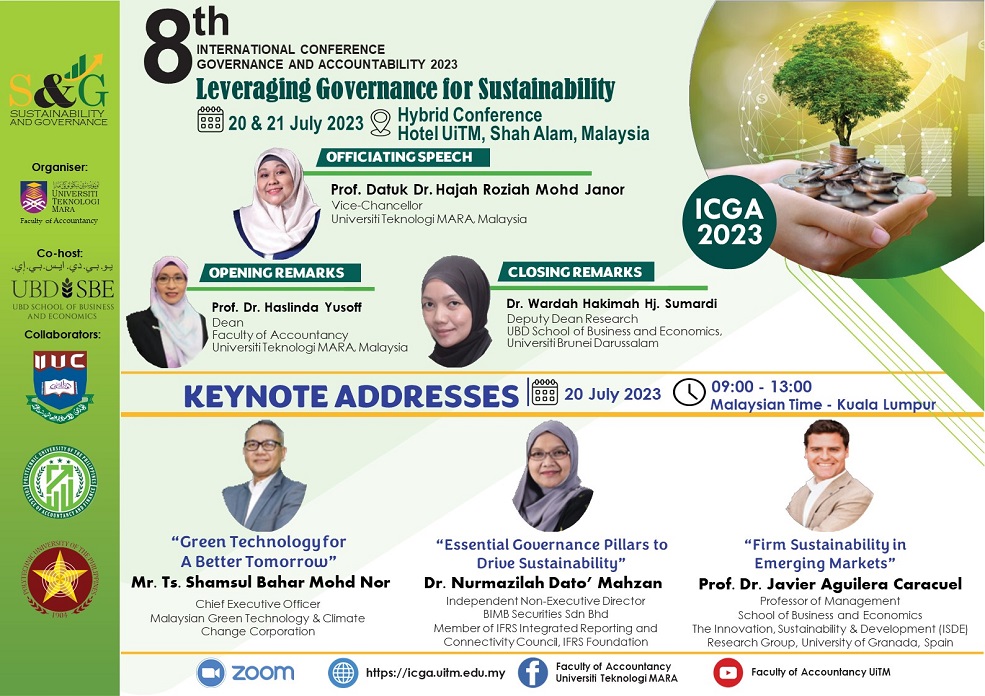8th International Conference on Governance and Accountability (ICGA) 2023
Theme: Leveraging Governance for Sustainability
Date: 20 – 21 July 2023

Universiti Brunei Darussalam School of Business and Economics (UBD SBE) is co-organising the 8th International Conference on Governance and Accountability (ICGA) 2023 with the Sustainability and Governance Talent Cluster, Faculty of Accountancy, Universiti Teknologi MARA Malaysia.
This first hybrid conference will be held from 20th to 21st July 2023 with the theme "Leveraging Governance for Sustainability”. The collaborators of the conference include the College of Accountancy and Finance of the Polytechnic University of the Philippines and the International Islamic University Chittagong, Bangladesh.
As in the past successful seven series, the 8th ICGA 2023 will present participants with an ambiance to communicate and share their research findings, ideas and approaches with other researchers and leading academics, practitioners and doctoral students, within the broad field of governance and accountability. The conference is expected to be a platform for academic discussions with collegial sharing and exchanging of views on the current issues in broad areas of governance, sustainability, and accountability including policies and regulation of corporate social and environmental behaviour, governmental influences on corporate accountability, low carbon economy, digitalisation and sustainability, carbon neutrality and many more.
The conference will feature prominent keynote speakers from industry and academia to present on current research and practice in the area of sustainability and governance in particular areas of accounting and business. These speakers represent different viewpoints, ensuring that the talks are stimulating and span broad coverage with the integration of research and practice.
For more information on 8th ICGA2023, please visit our website https://icga.uitm.edu.my/